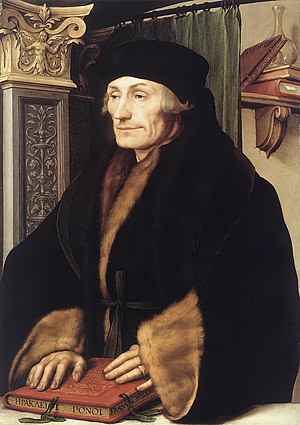For Erasmus, grace is active in our acting, in the beauty of virtue displayed that engages and transforms our affections, allowing us to play a part that becomes our own as we play it. […] Erasmus subverts the distinction between acting and being acted upon, fiction and reality, hypocrisy and honesty. Accepting the essential theatricality of virtue involves embracing a paradoxical convergence of outer and inner, ideal and real, grace and nature, other and self. It gives up the preoccupation with control betrayed by the need to draw clear distinctions between self and not-self, acting and being acted upon, giving and receiving.
Login to read more
Sign in or create a free account to access Subscriber-only content.
Topics:
